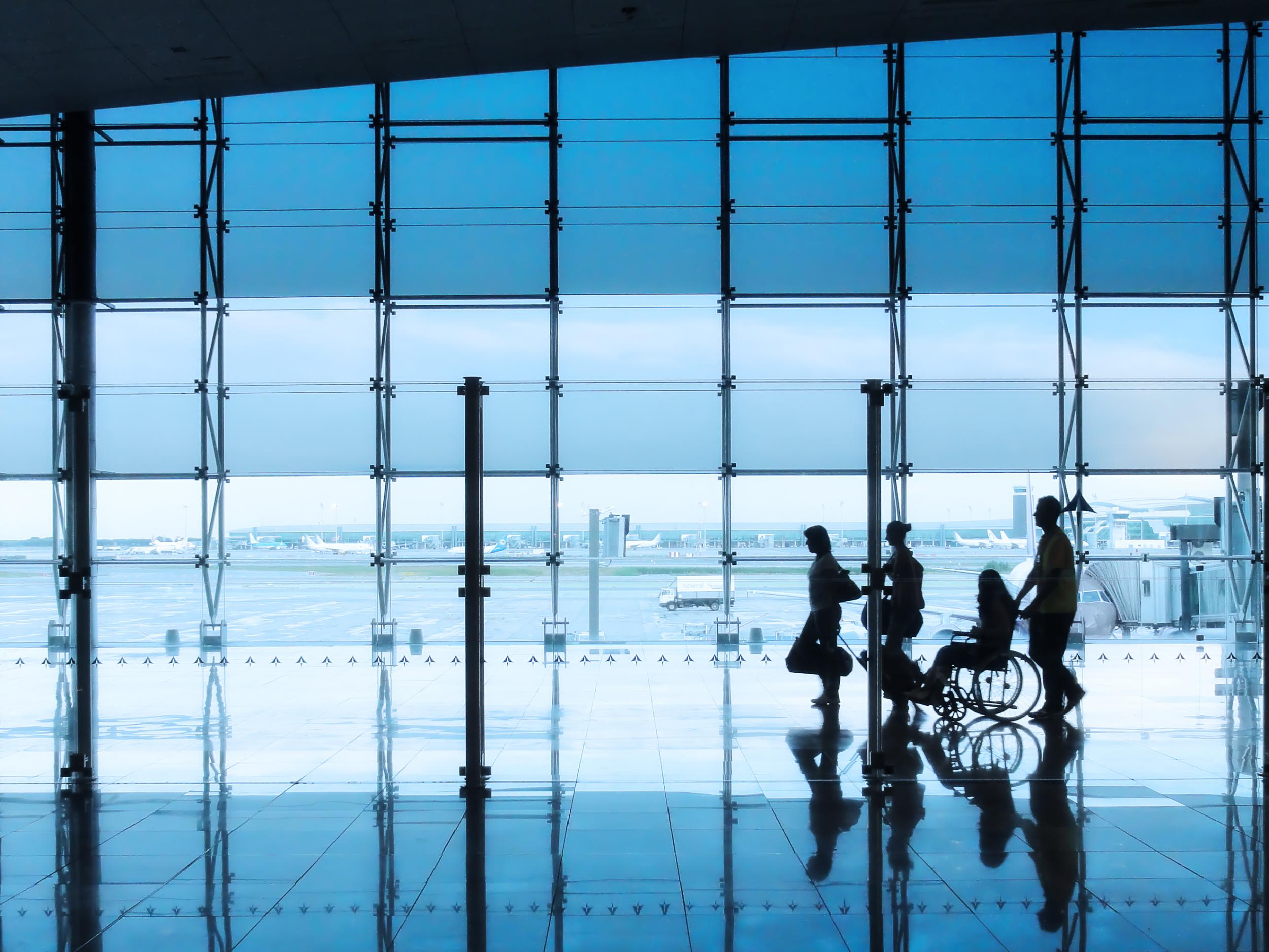UK airports score highly on accessibility for disabled passengers, says aviation watchdog
30 airports were ranked ‘good’ or ‘very good’

Your support helps us to tell the story
From reproductive rights to climate change to Big Tech, The Independent is on the ground when the story is developing. Whether it's investigating the financials of Elon Musk's pro-Trump PAC or producing our latest documentary, 'The A Word', which shines a light on the American women fighting for reproductive rights, we know how important it is to parse out the facts from the messaging.
At such a critical moment in US history, we need reporters on the ground. Your donation allows us to keep sending journalists to speak to both sides of the story.
The Independent is trusted by Americans across the entire political spectrum. And unlike many other quality news outlets, we choose not to lock Americans out of our reporting and analysis with paywalls. We believe quality journalism should be available to everyone, paid for by those who can afford it.
Your support makes all the difference.Fourteen UK airports have been rated as “very good” when it comes to accessibility for disabled passengers, according to new data.
In a ranking by the UK’s Civil Aviation Authority (CAA), airports including Belfast City, Edinburgh and Glasgow were deemed “very good”.
The aviation watchdog ranked 31 UK airports on how accessible they were for disabled passengers.
Sixteen airports were rated as “good”, which included London Heathrow, London Gatwick and London Stansted.
Only Manchester airport, the UK’s third busiest, received a “needs improvement” status – an improvement on its “poor” rating for the past two years.
There were 3.7 million requests for assistance at UK airports in the past year, a rise of 80 per cent since 2010, said the CAA.
“These results show significant improvements to the experience many disabled passengers faced before our reporting began. We hope this will help passengers to feel confident and empowered to travel from UK airports,” said Paul Smith, consumers and markets director at the UK Civil Aviation Authority.
“While it is good to see the general improvements, airports will need to continue to work hard to improve, so that they are able to meet the more demanding performance standards that we have now introduced.
“Where we see examples of bad practice, we will not hesitate to hold airports to account and take the necessary action.”
“It is encouraging that almost all of our main airports are rated highly, but there is much more to do,” said aviation minister Baroness Vere.
“The UK Civil Aviation Authority has introduced more demanding performance measures for airports, and the sector will continue to work to improve the experience for disabled passengers at every stage of their journey.”
Ceri Smith, policy and campaigns manager at disability equality charity Scope, said: “The fact that there has been such a positive change amongst so many airports since the CAA began its reporting shows the importance of shining a light on service provided to disabled passengers and holding transport operators to account when service isn’t good enough.
“It’s good to see that accessibility at airports is improving, but it’s vital that disabled passengers also receive good service once they get on the plane.
“We frequently hear horror stories from disabled passengers about their distressing experiences travelling by plane, such as being stranded on planes for hours after take-off.
“Disabled travellers should be able to expect a fair and consistent service from all transport providers and we look forward to the work the Government, CAA and airline industry are undertaking to ensure disabled people are able to travel by air with confidence.”
Earlier this week it was revealed that two thirds of disabled rail passengers experience problems travelling by train, according to new government research.
Looking at the experiences of disabled travellers all around the UK, the Department for Transport found that inaccessible toilets, ticket offices being closed and attitudes of other passengers all created barriers to travel.
The report, compiled in collaboration with Transport Focus, was based on a combination of 1,400 online survey responses, 150 face-to-face survey responses, 50 qualitative interviews, 12 expert interviews and 15 rail journeys conducted by passengers wearing a small camera to capture their experiences.
Airports with “Very Good” status
Aberdeen, Belfast City, City of Derry, Cornwall Newquay, Doncaster Sheffield, Edinburgh, Exeter, Glasgow, Glasgow Prestwick, Humberside, Kirkwall, Norwich, Southampton, Sumburgh.
Airports with “Good” status
Belfast International, Birmingham, Bournemouth, Bristol, Cardiff, East Midlands, Inverness, Leeds Bradford, Liverpool, London City, London Gatwick, London Heathrow, London Luton, London Southend, London Stansted, Newcastle.
Airports with ”Needs Improvement” status
Manchester
Join our commenting forum
Join thought-provoking conversations, follow other Independent readers and see their replies
Comments